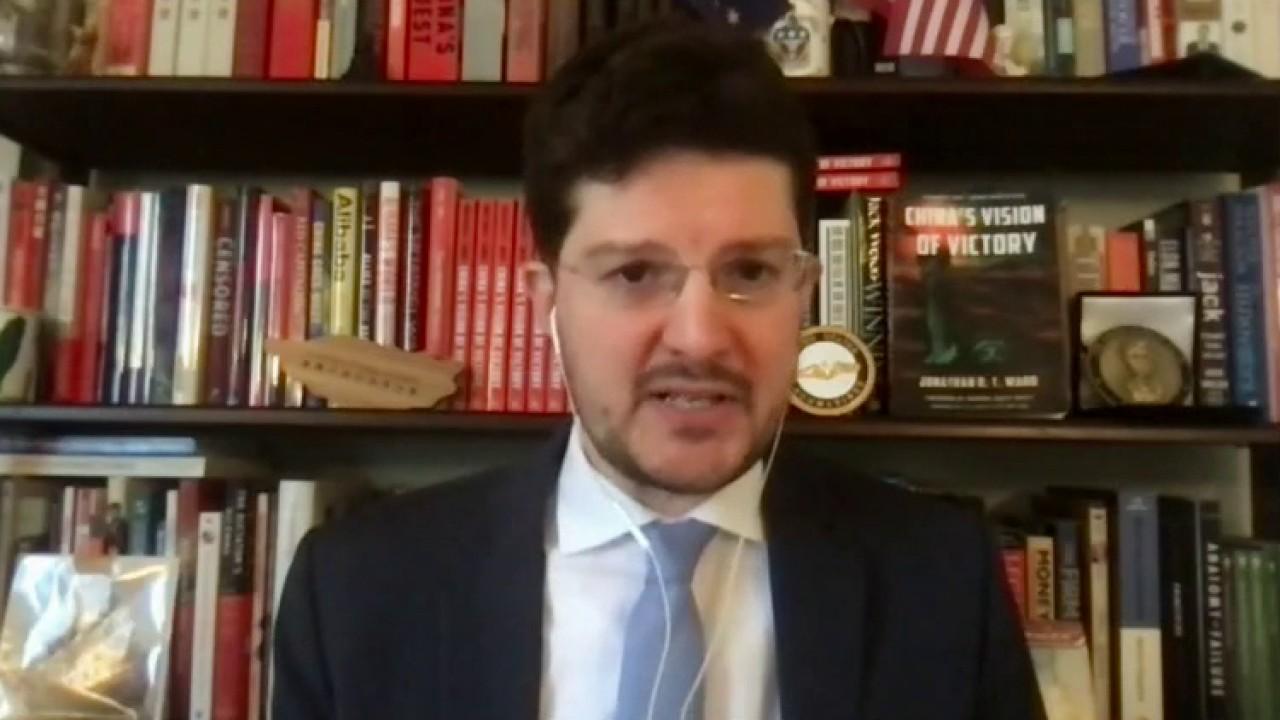China used stolen data to track CIA operatives in Africa, Europe: Report
The move is believed to be a part of a decades-along Chinese cyberespionage campaign aimed at stealing sensitive personal private information, according to CIA officials.
The Chinese have been using stolen data to track Central Intelligence Agency operatives conducting sensitive work in Africa and Europe since around 2013, according to an extensive investigation by ForeignPolicy.com, which includes interviews with more than three dozen current and former U.S. intelligence and national security officials.
Three former U.S. officials told ForeignPolicy.com that the surveillance by the Chinese began in some cases as soon as CIA officials had cleared passport control. They noted that, in some instances, surveillance was so overt that U.S. intelligence believed the Chinese wanted to them to know CIA operatives had been indentified in order to disrupt their missions. Other times the surveillance was more subtle and only detected through U.S. countersurveillance technology.
According to one of the sources, the CIA had been taking advantage of China's growing presence overseas to meet and recruit sources. A former agency official told the outlet that the CIA recruits “Russians and Chinese hard in Africa” and that the Chinese "know that."
ForeignPolicy.com noted that the move to track U.S. operatives was likely a response to the recruiting efforts.
US TO BLACKLIST DOZENS OF CHINESE COMPANIES, WILBUR ROSS SAYS
One former intelligence official said the anomalies "alarmed chiefs of station and division leadership,” adding that the Chinese "never should have known" who or where the undercover CIA personnel were.
Officials at the CIA reportedly believe the answer was data-driven, in relation to a decades-long Chinese cyberespionage campaign aimed at stealing sensitive personal private information, including travel and health data, as well as U.S. government personnel records in order to identify the undercover U.S. intelligence officials.
This “was not random or generic,” one source reportedly said. “It’s a big-data problem.”
William Evanina, the United States’ top counterintelligence official, told the outlet that China is "one of the leading collectors of bulk personal data around the globe, using both illegal and legal means.”
“Just through its cyberattacks alone, the PRC has vacuumed up the personal data of much of the American population, including data on our health, finances, travel and other sensitive information,” Evanina added.
According to ForeignPolicy.com, current and former U.S. officials say that China believes the data provides security, noting that it "ensures regime stability in the face of internal and external threats to the Chinese Communist Party."
TIK TOK JOB CANDIDATES' PERSONAL DATA ROUTED THROUGH CHINA WITHOUT THEIR KNOWLEDGE: REPORT
The Chinese reportedly discovered the CIA's penetration of their government through a flaw in an online system used by the U.S. spy agency to secretly communicate with their agents between 2010 and 2012. Foreign Policy explained that U.S. assets were embedded in the military, the CCP, the intelligence apparatus and elsewhere.
A former counterintelligence executive reportedly said that the anger radiated upward to “the highest levels of the Chinese government.” ForeignPolicy.com said the discovery resulted in the imprisonment and killing of dozens in the CIA's human source network in China.
A former senior agency official reportedly said U.S. intelligence was not surprised by China's retaliatory response, noting that the CIA "often had [a] conversation internally, on how U.S. policymakers would react to the degree of penetration CIA had of China.”
During the course of China's investigation into the CIA's network, Chinese officials reportedly learned that the agency was secretly paying "promotion fees," or bribes required to rise up within the Chinese bureaucracy, according to four current and former officials.
“Paying their bribes was an example of long-term thinking that was extraordinary for us,” a former senior counterintelligence official told ForeignPolicy.com. “Recruiting foreign military officers is nearly impossible. It was a way to exploit the corruption to our advantage.”
At the time, “promotion fees” sometimes ran into the millions of dollars, according to a former senior CIA official: “It was quite amazing the level of corruption that was going on.” The compensation sometimes included paying tuition and board for children studying at expensive foreign universities, according to another CIA officer.
One former senior official believes China's discovery of the CIA's recruiting success allowed the Chinese Communist Party to see the "institutional rot of the party" and that unchecked corruption was now a major counterintelligence threat.
CLICK HERE TO READ MORE ON FOX BUSINESS
As a result, the Chinese security services had created a sophisticated travel intelligence program by about 2010, developing databases that tracked flights and passenger lists for espionage purposes, which were actively used for "counterintelligence and offensive intelligence."
“We looked at it very carefully,” said the former senior CIA official.
Former intelligence officials told ForeignPolicy.com that China also stepped up hacking efforts by targeting biometric and passenger data from transit hubs, including Bangkok's international airport.
These moves between 2010 and 2012 allowed Beijing to build an infrastructure required to steal large datasets and easily sift through the information, according to a former senior NSA official, which paved the way for China's successful hack of the U.S. Office of Personnel Management, where sensitive personnel data related to health, residency, employment, fingerprint, and financials were stolen from 21.5 million current and former U.S. officials, their spouses, and job applicants.
A former counterintelligence executive said that while the OPM breach was not disclosed by the United States until 2015, U.S. intelligence officials became aware of the initial hack around 2012. One former senior national security official said that the OPM hack "opened up a global Pandora's box of problems," which would lead to additional cyberattacks going forward.
Another former senior CIA official said the hack was less of an eye-opener and more of "confirmation of new threats we already knew existed."
GET FOX BUSINESS ON THE GO BY CLICKING HERE
The CIA declined to comment on the report. The Chinese Embassy in the United States did not immediately return FOX Business' requests for comment.




















